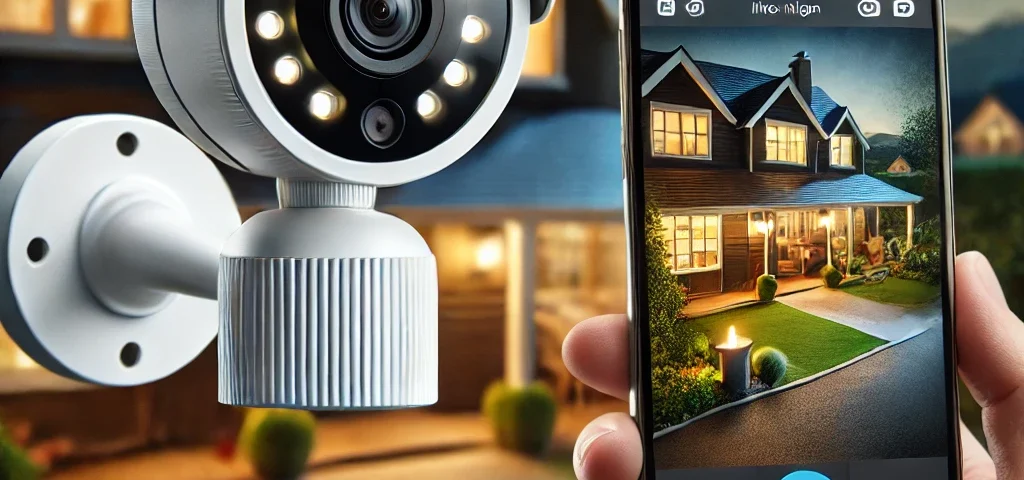
Nowadays, having a security camera at home is essential to ensure peace of mind and protect your family. However, with so many options available, choosing the best one can be challenging. Below, we explain the key factors to consider when selecting a security camera for your home.
1. Battery-Powered vs. Wired Cameras
Security cameras can be powered by batteries or connected to an electrical outlet. Here are the main differences:
- Battery-Powered Cameras:
- Easy to install anywhere without needing cables.
- Ideal for outdoor areas or places without power outlets.
- Some include solar panels for extended autonomy.
- Require periodic recharging or battery replacement.
- Wired Cameras:
- Do not require battery changes or recharging.
- Provide a stable and continuous connection.
- May require professional installation and cable drilling.
2. Video Resolution and Image Quality
A clear and sharp image is essential for identifying faces and details. The most common resolutions are:
- 720p (HD): Basic but sufficient for identifying people and movements.
- 1080p (Full HD): Better quality and greater image clarity.
- 2K or 3MP: Ideal for capturing more details and enhancing security.
- 4K: Maximum resolution, but consumes more storage and bandwidth.
3. Night Vision
It is crucial that the camera offers good image quality in low-light conditions. There are two main types:
- Black and White Night Vision: Uses infrared (IR) to discreetly illuminate the surroundings.
- Color Night Vision: Uses white LED lights or advanced sensors to capture colors in the dark.
4. Motion Detection and Real-Time Alerts
Many cameras have PIR sensors that detect movement and send notifications to your phone. Additional features include:
- Customizable detection zones.
- Differentiation between people, animals, and objects.
- Automatic recording when motion is detected.
5. Storage: Cloud or SD Card
You should consider where and how recordings will be stored:
- SD Card: Allows local video storage without subscriptions, but if the camera is stolen, the recording is lost too.
- Cloud Storage: Provides remote access to videos from any device but generally requires a subscription.
6. Connectivity and Compatibility
Modern cameras are usually compatible with mobile apps, allowing real-time viewing and alerts. You can also choose between:
- WiFi: Ideal for homes with a good Internet connection.
- 4G: Works without WiFi, perfect for rural areas or places with unstable connections.
7. Two-Way Audio
Some cameras include microphones and speakers that enable real-time communication. This is useful for deterring intruders or talking to visitors.
Conclusion
Choosing the best security camera for your home depends on your specific needs. If you want easy installation and flexibility, a battery-powered camera may be the best option. If you prioritize a stable connection and continuous storage, a wired camera could be the ideal alternative.
📈 Final Tip: Evaluate your budget, the environment where you will install it, and the features you truly need to make a smart purchase

